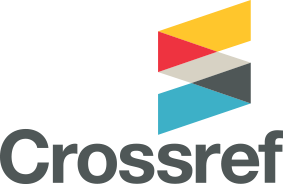Implementasi Penggajian Guru Honorer Di Sekolah Dasar
Keywords:
Payroll, honorary teacher, elementary schoolAbstract
The purpose of this study was to analyze the recitation of honorary teachers in Palembang 47 Primary Schools. In the process of collecting data the researcher also explained the purpose of the study to the informant who would mention the identity of the informant from the results of this study and would not have an impact on the informant who had provided information. In this study, to find out the supporting and inhibiting factors in the process of activities carried out in the implementation of the salary of honorary teachers in Palembang 47 Primary Schools. The data collected was then analyzed using the methods of data collection analysis, data reduction and data presentation besides this research also used qualitative analysis methods. The analysis in this study uses a qualitative analysis method that explains an overview of data in word form with the aim of understanding a social situation, events, roles and groups. The data collection techniques used are interviews with a number of sections related to the salary of honorary teachers, including Principals, Treasurers, School Operators, and Honorary Teachers. In the implementation of honorarium for teacher salaries of principals and school treasurers play an important role in the management of payroll honorary teachers and there are no standard payroll regulations for employees and honorary teachers. The amount of the National School Operational Assistance (BOSNA) and Regional School Operational Assistance (BOSDA) funds for schools is determined by the number of students. The greater the number of students, the greater the amount of the aid budget
References
Dientje Borman Rumampuk. (1988). Media Instruksi IPS. Jakarta: Dedikbud
Dientje Borman Rumampuk. (1997). Pedoman Penyelenggaraan Pendidikan di Sekolah. Jakarta: Depdikbud.
Dientje Borman Rumampuk.(1999). Panduan Manajemen Sekolah Dasar Jakarta: Depdikbud.
Dirjen Dikdasmen Depdikbud. (1996). Pengelolaan Sekolah. Jakarta: Depdikbud.
Ibrahim Bafadal. (2004). Manajemen Perlengkapan Sekolah Teori & Aplikasinya. Jakarta: PT Bumi Aksara.
Made Pidarta. (1988). Manajemen Pendidikan. Jakarta: Bina Aksara.
Malayu S.P. Hasibuan. (1990). Cetakan ke 5. Manajemen: Dasar, Pengertian, dan Masalah. Jakarta: CV Haji Masagung
Malayu S.P. Hasibuan. (2004). Manajemen Dasar, Pengertian dan Masalah. Jakarta: Bumi
Aksara
Mulyadi. (2008). Sistem Akuntansi. Yogyakarta: Aditya Media.
Mulyadi. (2009). Sistem Akuntansi Biaya. Yogyakarta: UPP-STIM YKPN.
Soemarso. (2009). Akuntansi Suatu Pengantar Jilid Satu. Jakarta; Selemba Empat.
Sugiyono. (2013). Metode Penelitian Pedidikan “Pendekatan Kuantitatif, Kualitatif, Dan R&D”.(Cetakan ke-18). Bandung: CV. Alfabeta.
Sutama. (2011). Metode Penelitian Pendidikan “Kuantitatif, Kualitatif, PTK, R & D”.(Cetakan Ke-3). Kartasura: Fairus Media.
Sutjipto. (1992). Administrasi Pendidikan. Jakarta: Dirjen Dikti Depdikbud.
Warschaver, Mark. (2011). Learning In the Cloud: how and why to trans form school with digital media. Teachers College Press. 2011
Winarno. (2006). Sistem Informasi Akuntansi. Yogyakarta: UPP STIM YKPN.








